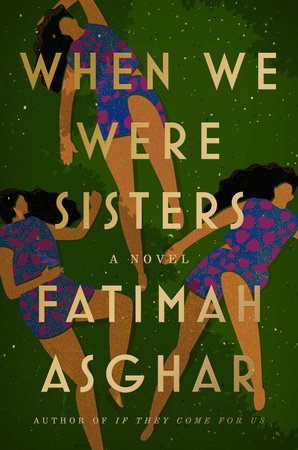I’ll get you into heaven, I say to the man at the masjid, idling by his parked car, stubbing out his cigarette hastily so his wife won’t see before Jummah prayer. It was Aisha’s idea to get money from the masjid so Meemoo doesn’t have to work more shifts. It’s brilliant.
I’m an orphan, I say again, my hand outstretched, the braid of my pigtail coming undone.
Anyone who’s willing to love me gets a guaranteed entry to Jannah. I cock my head slightly and tap my foot, seconds slipping until the Azan goes off and everyone disappears from their selective corners, the crack of a hundred knees sounds through the air. The man raises his eyebrow and stares for a moment before a voice reaches out to him, calling his name. His wife, duputta draped around her neck, is on the other side of the parking lot, looking for him like a confused chicken.
I saw you smoking, I say, hand still stretched out, until he digs into his pocket and pulls out a crumpled bill, nearly throwing it at me. Then he’s gone, scuttling back towards the woman that he belongs to. Everyone here belongs to someone.
On my way back to Aisha and Noreen I do a double take: there is Uncle █████’s oldest son, his kurta freshly ironed, screaming its newness. A fair-skinned boy, almost white but not quite, wearing Uncle █████’s face. Except for his color, he blends in perfectly with the other kids: parented, monied, belonging. His eyes zone in on me, moving from the bill wadded in my hand to the frayed collar of my shirt. His mother walks ahead towards the masjid, holding her younger son’s hand. They don’t see me. The older one turns his head quickly and runs to catch up with his mom.
*
My fingers wrapped in Noreen’s hair as she runs and I bounce on her back. Across the street Aisha howls, weaving, backpack dangling lightly off of one shoulder. In this world we were born into nothing but everything is ours: the sidewalk, the yellow markers in the road. The rain falls through the leaves and kisses us just so. What no one will ever understand is that the world belongs to orphans, everything becomes our mother. We’re mothered by everything because we know how to look for the mothering, because we know a mother might leave us and we’ll need another mother to step in and take its place. The tree mothering its shade. The restaurant door, propped slightly open, mothering its smell of cookies to us. The blinking walk sign, holding on long enough to mother us across the street. The sun mothering Noreen, warming her skin; the sidewalk mothering Aisha’s knee, kissing it when her body hits the pavement, a love strong enough to leave a mark. The rain, mothering us faster home. The hallway birds, mothering their cages. The hamster, mothering its wheel. All the mothers in the world reach out to the motherless. And beneath me, Noreen was made to mother me, my heartbeat pounding against her back, shouting so loud that it fills my entire being, you’re held, you’re held, you’re held.
*
As long as there have been Gods, there has been neglect. All our flawed Gods run around, birth the earth, and then forget us. Skip off with each other, talking about God things, annoyed with the banality of our humanness. I gave you life, they say when we complain, as they crush the tobacco into the betel leaf, adding syrup on top. And I can take it away. Their yellow teeth, gnashing and gnashing. And us, ungrateful humans, fold our knees a few times a day and expect the world to be handed to us. I made the earth turn. Again, <.big>they say, tired, home from work with a bag of groceries. But you didn’t play with us, we say and they roll their eyes. Get in their blue Cadillacs and drive away. Go back down the street to their own apartments, where they don’t have to think about us. Grow more trees from seeds. Let them branch out to the sky. How righteous, our small rages. See me! See me! we yell. God has to work today, they say from behind their computers, the dull glow on their faces, annoyed. We want softness, we say and turn away from the field of sunflowers that lush their yellow. Power, we say and a volcano explodes. Strength, and the trees root in their trunks. Touch, and the sand clings to our feet. Allah has forgotten me, I whisper in my bunk, alone, and I don’t notice the moon shining her light on my pillow, reaching.
__________________________________
From When We Were Sisters by Fatimah Asghar. Used with permission of the publisher, One World. Copyright © 2022 by Fatimah Asghar.













